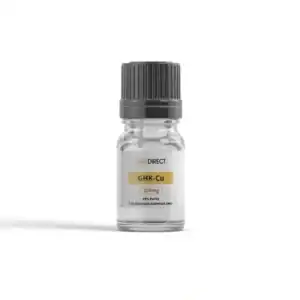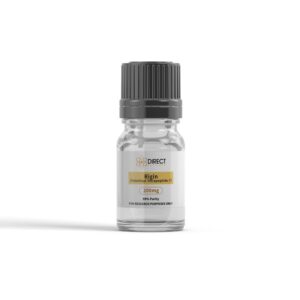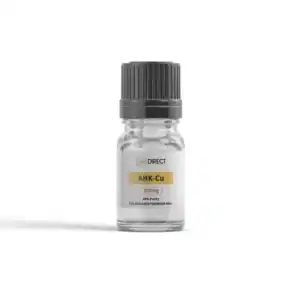Collagen peptides have surged in popularity in recent years, touted as a powerful ingredient for improving skin health. Derived from collagen, a protein found in skin, bones, and connective tissue, these peptides are known for promoting skin elasticity, reducing wrinkles, and enhancing overall hydration. However, as with any popular skincare trend, concerns arise. Can collagen peptides cause acne?
In this article, we will explore this question in detail, providing insights into the research surrounding collagen peptides and their potential link to acne. We will delve into the biological mechanisms at play, explore both the beneficial and negative effects of collagen peptides, and understand how they might impact individuals prone to acne.
To address whether collagen peptides cause acne, we first need to examine what triggers acne in the first place. Acne is a complex skin condition influenced by a range of factors. Understanding these causes will help us understand whether collagen peptides could be a potential trigger for acne flare-ups.
Excess Sebum Production: Sebum, the oil produced by sebaceous glands, is essential for maintaining healthy skin. However, when produced in excess, sebum can combine with dead skin cells, clogging hair follicles and leading to acne. Acne occurs when this mixture becomes a breeding ground for bacteria.
Hormonal Fluctuations: Hormones, particularly androgens, are known to regulate sebum production. Changes in hormone levels, such as those occurring during puberty, menstruation, pregnancy, or stress, can lead to increased sebum production, which is a significant cause of acne.
Inflammation and Bacterial Growth: When the skin’s follicles are clogged, Propionibacterium acnes, a type of bacteria, thrives. This leads to inflammation, which in turn leads to the development of pimples, blackheads, or cysts.
Genetic Factors: Genetics play a major role in acne susceptibility. If a family member has acne, you may be at a higher risk of experiencing acne yourself. Genetic predisposition affects skin type, oil production, and susceptibility to clogged pores.
Diet and Lifestyle: Emerging Netherlands research suggests that diet can impact acne development. Foods with a high glycemic index, dairy products, and high-sugar diets are linked to higher instances of acne. Studies have shown that diet can trigger hormonal fluctuations, which in turn stimulate sebum production.
With these key causes of acne in mind, we can now explore whether collagen peptides cause acne or whether they may have a different impact on skin health.
Shop ALL Topical Peptides from Direct Peptides Netherlands today, your trusted supplier of premium clinical-grade peptides online.
Now, let’s turn our attention to the question at hand: Can collagen peptides cause acne Netherlands? While collagen peptides are generally considered beneficial for skin health, there are instances where they may contribute to breakouts, especially in individuals with sensitive skin or certain pre-existing conditions. Here’s a breakdown of how collagen peptides might influence acne:
Collagen peptides are known for their ability to promote skin elasticity by stimulating collagen production. However, some research suggests that collagen peptides may influence hormone levels in the body. Specifically, collagen peptides may interact with certain hormones responsible for regulating oil production in the skin.
If collagen peptides increase androgen levels, this could lead to an overproduction of sebum, a key factor in acne development. This could explain why collagen peptides cause acne in some individuals.
Explore Peptide Supplies at Direct Peptides Netherlands for all your reconstitution requirements.
Collagen peptides are often derived from animal sources, such as fish, cows, or chickens. Some individuals may have allergies or sensitivities to these sources, which can result in skin irritation or acne-like breakouts.
Allergic reactions to collagen peptides are rare, but they can trigger inflammatory responses that lead to acne. Netherlands Research studies exclude participants with known sensitivities, but for some, these reactions may still occur.
In some cases, individuals taking collagen peptides may experience digestive discomfort, including bloating or constipation. The gut-skin connection is well-documented in research, and digestive issues can lead to systemic inflammation, which may exacerbate acne.
If collagen peptides cause digestive discomfort in certain individuals, this could explain why collagen peptides cause acne in some cases.
Like any supplement, excessive use of collagen peptides can lead to unintended side effects. In some research studies, high doses of collagen peptides have been linked to acne flare-ups, likely due to the body’s inability to process large amounts of the peptides effectively.
This suggests that moderation is key when using collagen peptides. Overuse may disrupt the balance of natural oils in the skin and contribute to breakouts.
Individuals with pre-existing acne or sensitive skin may be more prone to experiencing adverse reactions to collagen peptides. Netherlands Research studies often focus on participants with healthy skin, excluding those with acne-prone or sensitive skin.
If someone with a history of acne uses collagen peptides, they may notice an exacerbation of their acne, especially if they are also using other skincare products or medications that could interact with the peptides.
While collagen peptides cause acne in some cases, they are also used in Netherlands research to improve skin health. Specifically, topical peptides are frequently studied for their ability to promote collagen production and reduce acne scarring. Several peptides have shown promise in this area, providing an alternative solution for improving skin texture and reducing scarring caused by acne.
PAL-GHK is a peptide known for its regenerative properties. Research has shown that PAL-GHK promotes collagen production and can help reduce the appearance of acne scars.
By improving the skin’s natural elasticity and promoting skin regeneration, PAL-GHK can help smooth out uneven skin texture caused by acne scars.
 Copper peptides, particularly GHK-Cu, are widely studied for their healing properties.
Copper peptides, particularly GHK-Cu, are widely studied for their healing properties.
GHK-Cu has been shown to stimulate collagen production and reduce inflammation, which is beneficial for both preventing acne and healing acne scars.
This peptide has the ability to accelerate skin regeneration and improve the overall texture of the skin, making it a key ingredient in acne scar treatments.
 Rigin is another peptide that has been researched for its ability to boost collagen production and enhance skin elasticity.
Rigin is another peptide that has been researched for its ability to boost collagen production and enhance skin elasticity.
Netherlands Studies have shown that Rigin can reduce the appearance of fine lines and wrinkles, but it also plays a crucial role in healing acne scars.
By improving skin hydration and elasticity, Rigin helps promote skin healing and minimizes scarring caused by acne.
 Like GHK-Cu, AHK-Cu is a copper peptide that has been found to improve skin healing.
Like GHK-Cu, AHK-Cu is a copper peptide that has been found to improve skin healing.
It promotes collagen production and reduces inflammation, making it effective for improving the appearance of acne scars.
Netherlands Research shows that AHK-Cu can help the skin recover from acne-related damage by promoting tissue regeneration and collagen synthesis.
These peptides are promising for improving the appearance of acne scars, which is often a concern for individuals with acne-prone skin.
While collagen peptides are an effective option for improving skin health, there are also natural methods to boost collagen production and support skin healing. Incorporating these practices into your skincare routine can enhance the results of collagen peptides and help reduce acne:
Vitamin C is essential for collagen production and plays a key role in skin health. It helps stabilize collagen and promotes skin regeneration. Foods rich in vitamin C, such as citrus fruits, strawberries, and bell peppers, can support the natural production of collagen and improve the skin’s overall appearance.
Collagen is made up of amino acids, including proline, glycine, and lysine. Consuming protein-rich foods like eggs, fish, and beans provides the body with the building blocks needed for collagen synthesis. These amino acids support healthy skin and contribute to improved healing and skin texture.
Staying hydrated is essential for maintaining skin elasticity. Dehydrated skin is more prone to damage and acne. Drinking plenty of water and using hydrating skincare products helps keep skin healthy and supports collagen production.
UV rays from the sun can break down collagen, leading to premature aging and increased risk of acne scars. Wearing sunscreen daily protects the skin from UV damage and helps preserve collagen levels, reducing the likelihood of scarring and further breakouts.
The question of whether collagen peptides cause acne is multifaceted. While collagen peptides can cause acne in certain individuals due to hormonal changes, digestive issues, or allergic reactions, they are generally beneficial for improving skin health. They can help stimulate collagen production, reduce wrinkles, and heal acne scars.
If you’re considering incorporating collagen peptides into your routine, it’s essential to monitor your skin’s response and adjust usage accordingly. Netherlands Topical peptides like GHK-Cu, PAL-GHK, and Rigin show promise in treating acne scars and improving skin texture, making them great alternatives or complements to oral collagen peptides.
Ultimately, collagen peptides are a powerful tool for enhancing skin health, but as with any skincare product or supplement, it’s essential to use them appropriately and consult a professional if you have concerns about potential side effects.
[1] Al-Atif H. Collagen Supplements for Aging and Wrinkles: A Paradigm Shift in the Fields of Dermatology and Cosmetics. Dermatol Pract Concept. 2022 Jan 1;12(1):e2022018.
[2] Pickart L, Margolina A. Regenerative and Protective Actions of the GHK-Cu Peptide in the Light of the New Gene Data. Int J Mol Sci. 2018 Jul 7;19(7):1987.
[3] Pickart L, Vasquez-Soltero JM, Margolina A. GHK Peptide as a Natural Modulator of Multiple Cellular Pathways in Skin Regeneration. Biomed Res Int. 2015;2015:648108.
[4] He X, Gao X, Guo Y, Xie W. Research Progress on Bioactive Factors against Skin Aging. Int J Mol Sci. 2024 Mar 28;25(7):3797.
[5] Pintea A, Manea A, Pintea C, Vlad RA, Bîrsan M, Antonoaea P, Rédai EM, Ciurba A. Peptides: Emerging Candidates for the Prevention and Treatment of Skin Senescence: A Review. Biomolecules. 2025 Jan 9;15(1):88.
Shop ALL Peptide Vials from Direct Peptides Netherlands today, your trusted supplier of premium clinical grade peptides online.
Collagen peptides don’t directly cause acne, but some people may experience breakouts due to digestive changes, mild inflammation, or sensitivity to certain collagen sources like bovine or marine. Overuse may also disrupt the skin’s oil balance. If acne appears after starting collagen, lowering your dose or switching brands may help.
Collagen itself doesn’t raise sebum levels, but some individuals may experience hormonal shifts that indirectly stimulate oil production. If increased oil coincides with starting collagen peptides, it may be due to dosage, changes in diet, or interaction with other supplements. Monitoring skin response can help determine whether collagen is the cause.
Breakouts can occur if the body reacts to collagen sources like fish, eggs, or beef, or if the supplement affects digestion and inflammation. Gut imbalance can influence skin health, making acne more likely. Starting with a lower dose, choosing hydrolyzed collagen, or switching to a cleaner formula often reduces acne-like side effects.
Marine collagen is generally well-tolerated, but people with fish allergies or sensitivities may experience skin irritation or acne-like flare-ups. These reactions stem from inflammation, not the collagen itself. If marine collagen leads to breakouts, switching to bovine or porcine collagen, or trying topical peptides, can be a better alternative.
Collagen peptides are not hormonal, but they may influence hormones indirectly through improved gut health, protein intake, or metabolic changes. In rare cases, this shift may increase oil production and trigger acne. If hormonal acne worsens with collagen use, adjusting the dosage or taking breaks can help balance skin reactions.
If collagen peptides trigger breakouts, acne typically appears within the first two to four weeks and may resolve once the body adjusts. Persistent acne may indicate sensitivity to the collagen source, overuse, or digestive imbalance. Reducing the dose or switching brands usually results in clearer skin within a few weeks.
Topical peptides like GHK-Cu, PAL-GHK, Rigin, and AHK-Cu are shown to boost collagen production, reduce inflammation, and support skin repair. These ingredients can soften acne scars, improve texture, and enhance skin firmness without clogging pores. They offer a non-comedogenic alternative for people who break out when using oral collagen.
For acne-prone skin, topical peptides are often safer because they don’t affect digestion or sebum production. They stimulate collagen directly in the skin, reducing the risk of breakouts while improving firmness and scar healing. Oral collagen can still be beneficial, but starting slowly helps avoid potential flare-ups.
Start with a small dose, choose hydrolyzed collagen, and ensure the formula is free from additives, artificial flavors, or sugar. Taking collagen with food and supporting gut health may reduce inflammation-related breakouts. If acne persists, switching sources (marine vs. bovine) or using topical peptides instead may be more suitable.
Yes. Alternatives include topical peptides (GHK-Cu, PAL-GHK, AHK-Cu), vitamin C, amino acids, silica, and hyaluronic acid. These support collagen production without affecting oil production or digestion. For acne-prone individuals, topical peptides offer the best combination of skin regeneration and low breakout risk.
ALL CONTENT AND PRODUCT INFORMATION AVAILABLE ON THIS WEBSITE IS FOR EDUCATIONAL PURPOSES ONLY.
DISCLAIMER: These products are intended solely as a research chemical only. This classification allows for their use only for research development and laboratory studies. The information available on our Netherlands Direct Peptides website: https://direct-peptides.com is provided for educational purposes only. These products are not for human or animal use or consumption in any manner. Handling of these products should be limited to suitably qualified professionals. They are not to be classified as a drug, food, cosmetic, or medicinal product and must not be mislabelled or used as such.